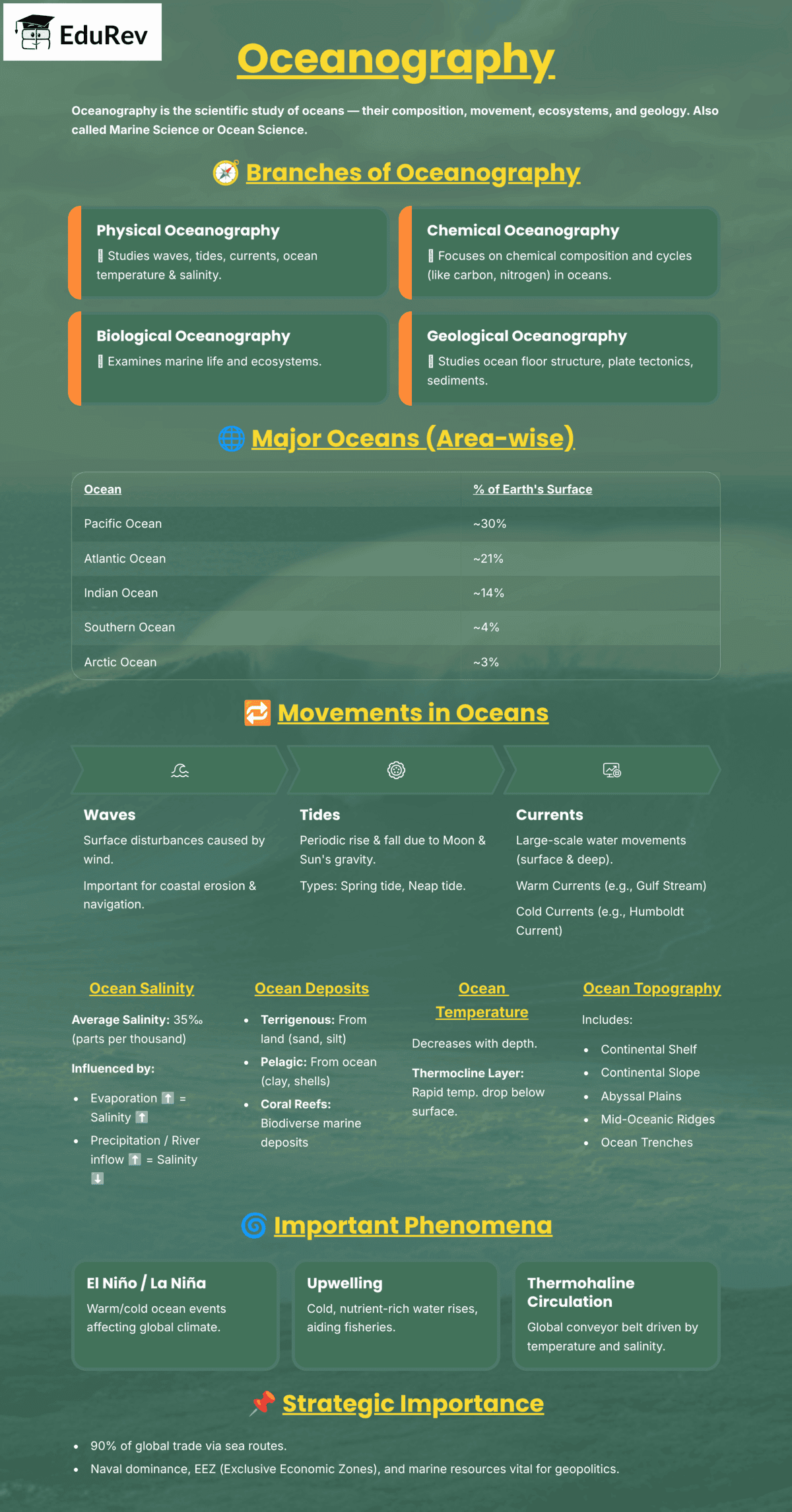UPSC Exam > UPSC Notes > Geography for UPSC CSE > Infographic: Oceanography
Infographic: Oceanography | Geography for UPSC CSE PDF Download

The document Infographic: Oceanography | Geography for UPSC CSE is a part of the UPSC Course Geography for UPSC CSE.
All you need of UPSC at this link: UPSC
|
269 videos|870 docs|231 tests
|
FAQs on Infographic: Oceanography - Geography for UPSC CSE
| 1. What is oceanography and why is it important for UPSC aspirants? |  |
Ans.Oceanography is the scientific study of the oceans, including their physical, chemical, biological, and geological aspects. For UPSC aspirants, understanding oceanography is crucial as it relates to environmental studies, climate change, resource management, and marine biodiversity, all of which are significant topics in the civil services examination.
| 2. What are the main branches of oceanography that candidates should focus on for the UPSC exam? |  |
Ans.The main branches of oceanography include physical oceanography, which studies ocean currents and waves; chemical oceanography, which examines the chemical composition of seawater; biological oceanography, focusing on marine life and ecosystems; and geological oceanography, which investigates the ocean floor and marine sediments. Candidates should have a basic understanding of these branches to tackle relevant questions in the exam.
| 3. How do ocean currents affect climate and weather patterns? |  |
Ans.Ocean currents play a significant role in regulating climate and weather patterns by distributing heat across the planet. Warm currents can raise temperatures in coastal areas, while cold currents can lower them. This interaction influences weather systems, such as monsoons and hurricanes, making it an important topic for UPSC candidates to understand.
| 4. What is the significance of marine biodiversity in oceanography? |  |
Ans.Marine biodiversity is crucial for maintaining ecosystem balance, supporting food webs, and providing resources like food, medicine, and tourism. Understanding marine biodiversity helps UPSC aspirants appreciate the importance of conservation efforts and the impact of human activities on oceanic health, aligning with topics on sustainable development and environmental policies in the exam.
| 5. What impact does pollution have on ocean ecosystems? |  |
Ans.Pollution, including plastic waste, oil spills, and chemical runoff, significantly harms ocean ecosystems by disrupting food chains, harming marine species, and degrading habitats. For UPSC aspirants, recognizing the effects of pollution is essential for discussing environmental challenges and potential policy solutions in their examination responses.
Related Searches
















